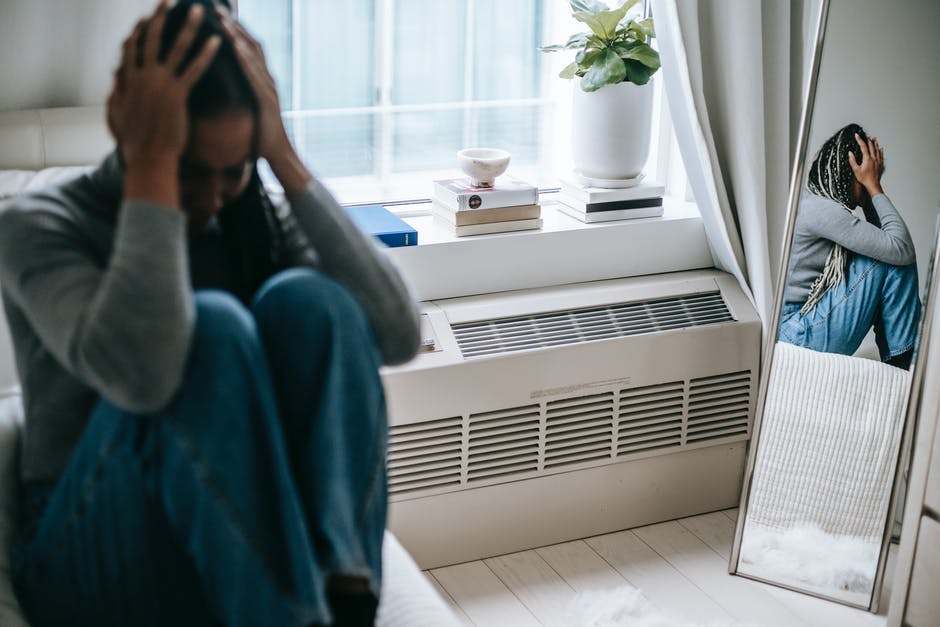Anxiety disorders are not conditions that people “make up.” They can get in the way of people’s lives.
When someone has an anxiety disorder, they feel too much fear, worry, and tension. Whether there is real danger around or not, mental pain hurts just as much.
It can seem like this problem is a lot more common now than it used to be. Is anxiety disorder a new illness, or is it just part of being human?
This article should help you figure out what to do. Let’s talk about what causes anxiety disorder, how to treat it, and what you can do to help yourself.
Exploring Possible Causes of Your Anxiety Disorder
When thinking about what might be causing your anxiety, look at things like your family history, what you did as a child, and the recent changes in your life. Consider also what you do every day and your health.
Genetic Factors
One of the most essential things about anxiety disorders is that they are caused by a person’s genes and family history. People who come from families where anxiety disorders are common are more likely to have anxiety disorder symptoms themselves.
This could be something that runs in your family. Genes can change how your body works, which can change how your body reacts to stress and lead to signs and symptoms of anxiety disorder.
Anxiety has been linked to changes in genes that affect how much serotonin a person has, how their brain develops, and how they act when stressed. People with these genetic traits are more likely to have anxiety. However, the interactions between genes and the environment still need to be studied to understand how anxiety develops fully.
Environmental Factors
These things could be anything from having a crazy family life to the stress of being poor to problems with friends to moving to a new area. Anxiety disorders can sometimes be caused by traumatic events or a mix of these things.
It’s essential to keep track of any changes in the environment that might have caused the disorder, like a stressful job or a family that doesn’t get along well. With this information, people can improve their environment and be less stressed.
Psychological Factors
It’s essential to think about whether you have unrealistic expectations or put too much pressure on yourself, or if you’re too hard on yourself or don’t have enough self-confidence. Anxiety can also come from worrying about what other people think of you or not living up to their expectations. It can also come from worrying about failing or being rejected.
Identifying the Signs and Symptoms of Anxiety Disorders
Anxiety disorders are one of the most common mental health concerns. They can cause immense fear, dread, and worry that greatly impair a person’s day-to-day functioning.
Physical Symptoms
Anxiety disorders can cause uncomfortable physical symptoms. It can make you feel sick, dizzy, tremble and shake, have tight chest tightness, and trouble breathing.
People may also get headaches, feel dizzy, and have racing hearts. Some people may also throw up, have stomach problems, have trouble sleeping, feel tired, have tight or twitching muscles, or feel pain in their muscles. The severity of these physical signs depends on how bad the anxiety is, and they may come and go in waves.
Social Symptoms
Anxiety disorders can make it hard to communicate, avoid eye contact, pull away from social situations, and connect with other people meaningfully. People may also not want to talk to their family, friends, or coworkers because they are afraid of being judged or misunderstood.
Other social signs of depression include wanting to stay at home, not wanting to try new things, and feeling a lot of shame or guilt. Because they are so worried and scared, some people may have trouble making and keeping friends. They may also do poorly in school or turn down job opportunities.
Investigating Treatment Options for Anxiety Disorders
Anxiety disorders can be addressed by talking to a mental health professional or psychiatrist about your options. You can also make a treatment plan, try alternative medicine, and use tools to help you deal with your anxiety are good ideas.
Cognitive Therapy
People with mental disorders have found that cognitive therapy works well as a treatment. This therapy aims to help people become aware of and question the negative thoughts and beliefs that make them anxious. It also helps them understand how their bodies react to anxiety and find better ways to deal with their physical and emotional symptoms.
Holistic Therapy
Holistic therapy tries to treat the whole person, not just a single symptom or disorder. It believes that the best way to treat anxiety is to care for the person’s physical and mental health.
Holistic therapy uses many methods to help people feel calm and relaxed. These methods include mindfulness, relaxation, yoga, aromatherapy, acupuncture, and changes to diet and lifestyle. It also tells people to take charge of their health by looking at all parts of their lives and making changes to help them feel less anxious.
Ketamine Infusion
An infusion of ketamine is a good way to treat anxiety, especially in cases that are severe or hard to treat. It has been found that ketamine infusions can help reduce anxiety symptoms quickly because they work so quickly.
Also, ketamine infusion for anxiety is usually well tolerated, and most side effects are mild and go away on their own. Because of this, ketamine infusion is a very appealing way to treat people who can’t get relief from other treatments.
Take Positive Steps!
Anxiety disorders should be taken seriously as they can lead to depression, physical/emotional health issues, and other detrimental outcomes. With treatment, many people find that they can manage the symptoms and learn to cope with the disorder.
Seeking the help you need can have a positive and lasting impact on your mental well-being. If you believe you are struggling with an anxiety disorder, you must reach out to a mental health professional for diagnosis and help.
What are you waiting for? Get the help that you need today!
Is this article helpful? If so, check out the rest of our blog for more informative content!





Leave a Reply
You must be logged in to post a comment.